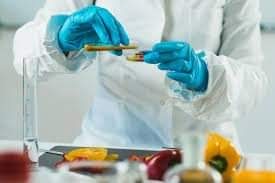In a significant collaboration between the National Fisheries Authority (NFA) and the Department of Applied Sciences at Unitech, the Food Testing and Monitoring Center has been established.
The project, which originated in 2012, saw its first memorandum of understanding signed in 2014, with a revised agreement inked in December 2022.
Under this partnership, NFA has provided crucial support for the establishment of the Food Testing and Monitoring Center, including the acquisition of advanced equipment.
This equipment includes state-of-the-art tools such as ICPMS for trace element analysis, mass spectrometers for organic containment analysis, and high-performance liquid chromatographs.
The utilization of such cutting-edge analytical equipment affords the Center the ability to delve deeper into samples, facilitating the detection of trace levels of contaminants.
This capability is particularly crucial for meeting the stringent European Market requirements for fish and fishery products from Papua New Guinea.
Established as a competent authority within the Pacific Region, NFA holds a unique position, granting Papua New Guinea direct access to the European market for its fisheries products.
This advantage is not enjoyed by other Pacific countries, as they lack a similar competent authority.
The importance of laboratory testing in meeting European market requirements cannot be overstated, thus prompting the collaboration between NFA and Unitech’s Department of Applied Sciences.
The Center is currently undergoing accreditation, with the PNG Laboratory Accreditation Scheme conducting its initial assessment in December of the previous year.
The aim is to fulfil the specified requirements under ISO17025, ensuring competence in testing and calibration laboratory operations.
NFA has also demonstrated its commitment to extending services beyond its immediate scope, recently presenting a vehicle to the applied science department as a symbol of support.
Plans are underway to offer testing services for a range of contaminants, including pesticide residues, in addition to expanding testing to food crops such as coffee, cocoa, and honey.
While the focus remains primarily on testing fish samples for NFA, the Center anticipates broadening its services to encompass other agricultural products.
Currently, the Center conducts testing for NFA through quarterly surveillance monitoring, wherein fishing companies submit samples for analysis.
In addition to chemical analysis, the Center is also engaged in microbiological testing to detect pathogens and microorganisms, ensuring the safety and quality of food products.
Such testing is vital in maintaining product integrity, particularly in environments where degradation can occur rapidly, such as during transportation and storage.
The establishment of the Food Testing and Monitoring Center underscores a significant step forward in ensuring the quality and safety of Papua New Guinea’s fisheries products, thereby bolstering its position in the international market.

